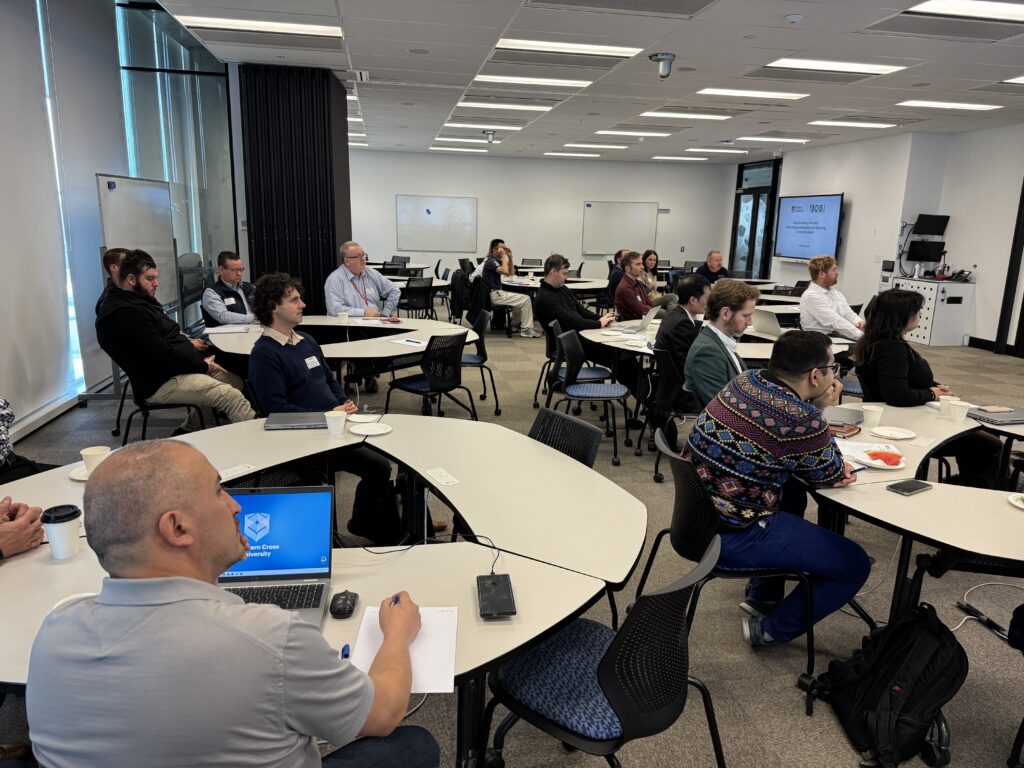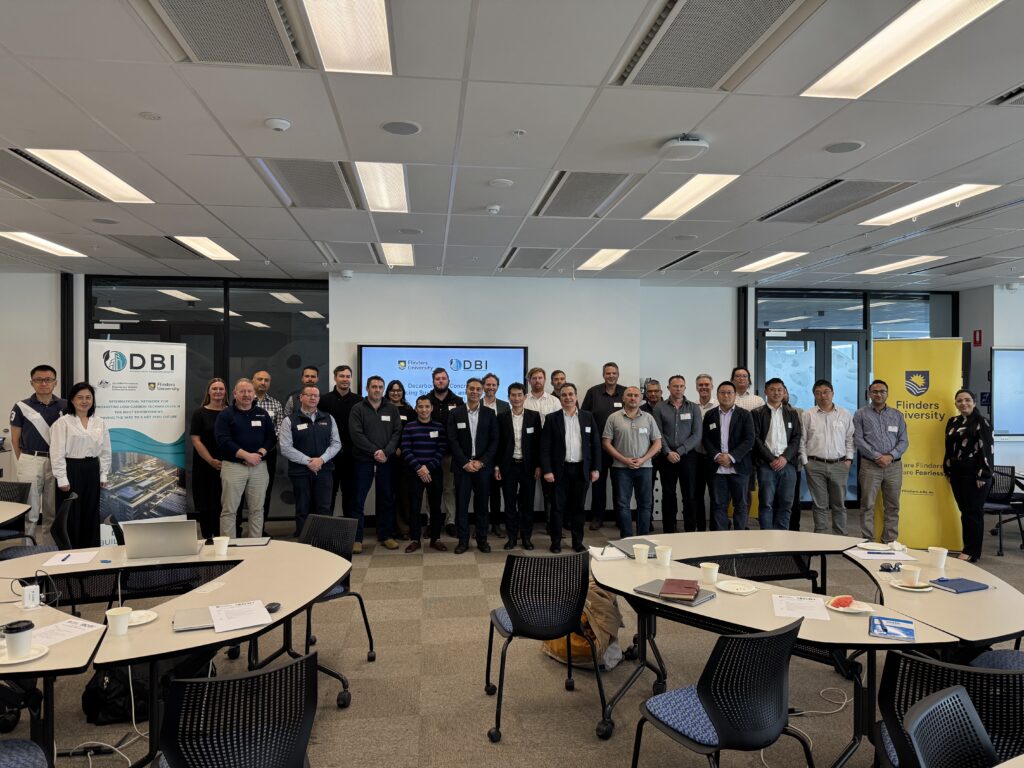Event date: September 27, 2024
The “Decarbonising Concrete: Enhancing Sustainability and Reducing Carbon Footprint” workshop held at Flinders University on 27 September 2024 brought together experts from various sectors, including industry, government, and academia, to discuss sustainable innovations in concrete production. This event was part of the Researcher Network for Decarbonising the Building Industry (DBI) initiative, aiming to reduce the carbon footprint of construction materials, particularly concrete, in pursuit of net-zero targets by 2050.

Dr. Aliakbar Gholampour, Flinders University
Dr. Aliakbar Gholampour kicked off the workshop, emphasizing the critical need to decarbonize concrete due to its significant contribution to global CO2 emissions. He pointed out that achieving net-zero by 2050 hinges on innovative approaches and collaborative efforts between industry, government, and academia to develop low-carbon concrete materials.
Professor Alistair Rendell, Flinders University
Professor Alistair Rendell, Vice President and Executive Dean at Flinders University, welcomed participants by highlighting the university’s commitment to sustainability and research in green construction materials. He stressed the importance of aligning academic research with industry needs to accelerate decarbonization efforts.
Professor Tuan Ngo, University of Melbourne and DBI Network convener
Professor Tuan Ngo, the DBI Network convener, shared the DBI Network’s mission to foster collaboration across sectors to address the urgent need for sustainable building practices. He discussed the significant carbon emissions from the construction of 1.2 million homes over the next five years and how DBI is focused on reducing these impacts through research, innovation, and stakeholder engagement.
David Law, Aurecon
David Law from Aurecon provided a designer’s perspective on low-carbon concrete, reflecting on the challenges faced by designers in incorporating sustainable materials. He highlighted the importance of reliable data and standards in enabling the adoption of low-carbon concrete on major infrastructure projects.
Mitchell Bacon, ResourceCo
Mitchell Bacon of ResourceCo presented their work in recycling materials like glass and converting waste into useful resources for concrete production. He discussed the challenges of increasing the use of recycled materials in concrete and how ResourceCo’s innovative approaches are making strides in waste recovery.
Kane Salisbury, Hallett Group
Kane Salisbury, CEO of Hallett Group, discussed the company’s efforts to transform the cement industry by sourcing supplementary cementitious materials (SCMs) from local and international sources. He emphasized the need to develop local SCM supplies to reduce the global carbon footprint associated with importing these materials.
Dr Jason Mann, MCi Carbon
Dr. Jason Mann from MCi Carbon discussed pathways for decarbonizing hard-to-abate industries, focusing on CO2 capture and conversion technologies. His research aims to produce new construction materials from carbon emissions, further enhancing the sustainability of the industry.
William Van Ausdal, Flinders University
William Van Ausdal, Head of Sustainability at Flinders University, shared the university’s sustainability journey and challenges in implementing low-emissions concrete in large-scale projects. He underlined the importance of reliable, scalable solutions to meet sustainability goals in construction.
Professor Rocco Zito, Flinders University
Professor Rocco Zito closed the presentations with an overview of ongoing research at Flinders University aimed at enhancing the sustainability of concrete. He pointed out the critical role of academia in developing new materials and testing methods to support the industry’s decarbonization goals.
The workshop highlighted the crucial need for collaboration across sectors to develop and implement low-carbon concrete technologies. The round table discussions focused on overcoming barriers to adopting sustainable materials, addressing regulatory and policy challenges, and changing mindsets toward using recycled and low-emission materials.

